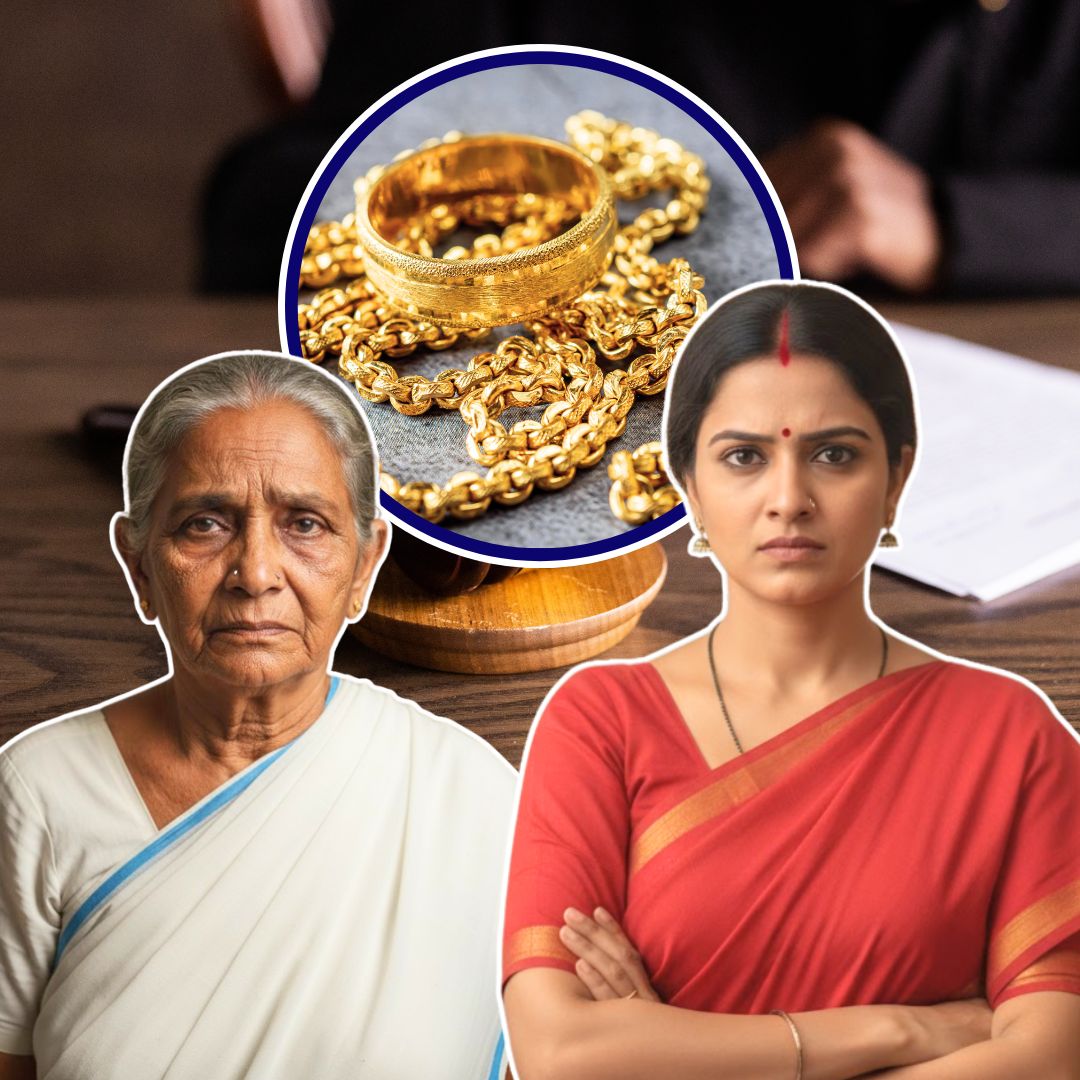In Rajasthan’s Chittorgarh district, a court ordered the registration of an FIR against Arushi Jain, the daughter-in-law, for allegedly extorting money and property from her in-laws in a matrimonial dispute.
The case, filed by her mother-in-law Renu Chordia, accuses Arushi of coercing and intimidating the elderly and cancer-stricken Renu to forcibly take her ancestral jewellery and woman’s property.
The court acted on strong evidence, including video proof, registering charges under sections 384 (extortion) and 406 (criminal breach of trust) of the Indian Penal Code.
Background of the Dispute
The complaint was lodged following a matrimonial discord where Arushi Jain, along with her parents, allegedly pressured her mother-in-law and other family members to part with valuable assets forcibly.
The case highlights a rarely reversed dynamic in familial property disputes, where a daughter-in-law faces significant accusations by her mother-in-law, a narrative uncommon in such conflicts traditionally dominated by accusations against in-laws. The elderly complainant, battling cancer, alleged extreme mental harassment and exploitation.
Legal Proceedings and Evidence
The court, having thoroughly reviewed FIR number 458/2020 and examined video evidence and witness testimonies, found prima facie merit in the allegations. It directed police to register a formal FIR against Arushi and commence investigations.
The legal experts emphasize that criminal law applies equally regardless of gender or familial relations, underscoring the seriousness of the charges. The complainant is represented by Advocate Apoorva Chordia, advocating strongly for justice on behalf of the aggrieved mother-in-law.
The Logical Indian’s Perspective
This case highlights the complexities and sensitivities of familial disputes intertwined with legal rights and responsibilities.
It challenges stereotypes surrounding gender roles within family conflicts and demonstrates that the legal system should be impartial and protective of all parties. It also points to the urgent need for mediation mechanisms, empathetic communication, and legal literacy within families to prevent escalation into litigation.
News in Q&A
- What is the case about and who are the main parties involved?
The case involves Arushi Jain, a daughter-in-law from Rajasthan’s Chittorgarh district, accused by her mother-in-law, Renu Chordia, of extorting ancestral jewellery and woman’s property through threats and intimidation. The complainant is an elderly woman battling cancer, alleging severe mental harassment and coercion. - When and where did the complaint originate, and what legal actions followed?
The complaint was filed in the Nimbahera court, Chittorgarh district, Rajasthan, amid a matrimonial dispute. Based on evidence including video footage and witness testimonies, the court directed the registration of an FIR under sections 384 (extortion) and 406 (criminal breach of trust) of the Indian Penal Code to begin a formal investigation against Arushi. - Why is this case considered unusual or significant?
The case is rare because, unlike typical familial property disputes where in-laws are often accused, here the daughter-in-law is the accused party. Legal experts highlight that criminal law applies impartially regardless of family relations or gender, emphasizing equal protection and accountability under the law. - What are the details surrounding the allegations?
The complaint alleges that Arushi, reportedly with the help of her parents, forcibly extracted valuable assets from her mother-in-law, including ancestral jewellery and woman’s property, applying mental pressure on a vulnerable cancer patient. The court found sufficient prima facie evidence to proceed with criminal charges. - What does the case reveal about family disputes and legal recourse in India?
It spotlights the complex and often fraught nature of family and matrimonial disputes involving property rights. The legal process here demonstrates the judiciary’s role in prioritising evidence and justice over social biases. The case encourages broader reflection on mediation, awareness, and equitable conflict resolution to prevent escalation.













